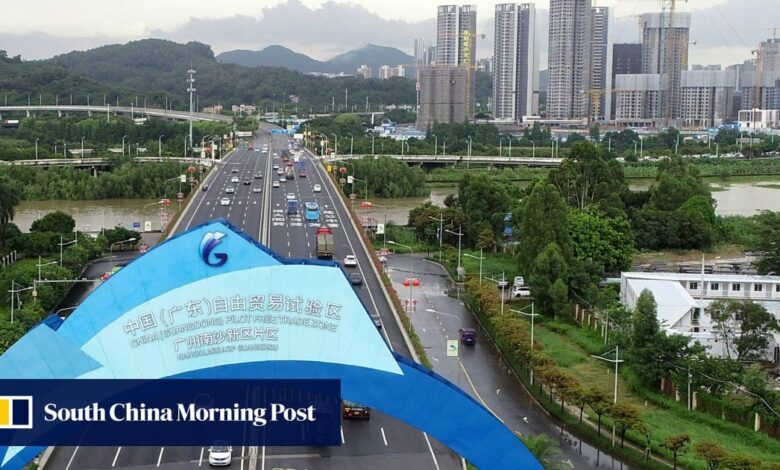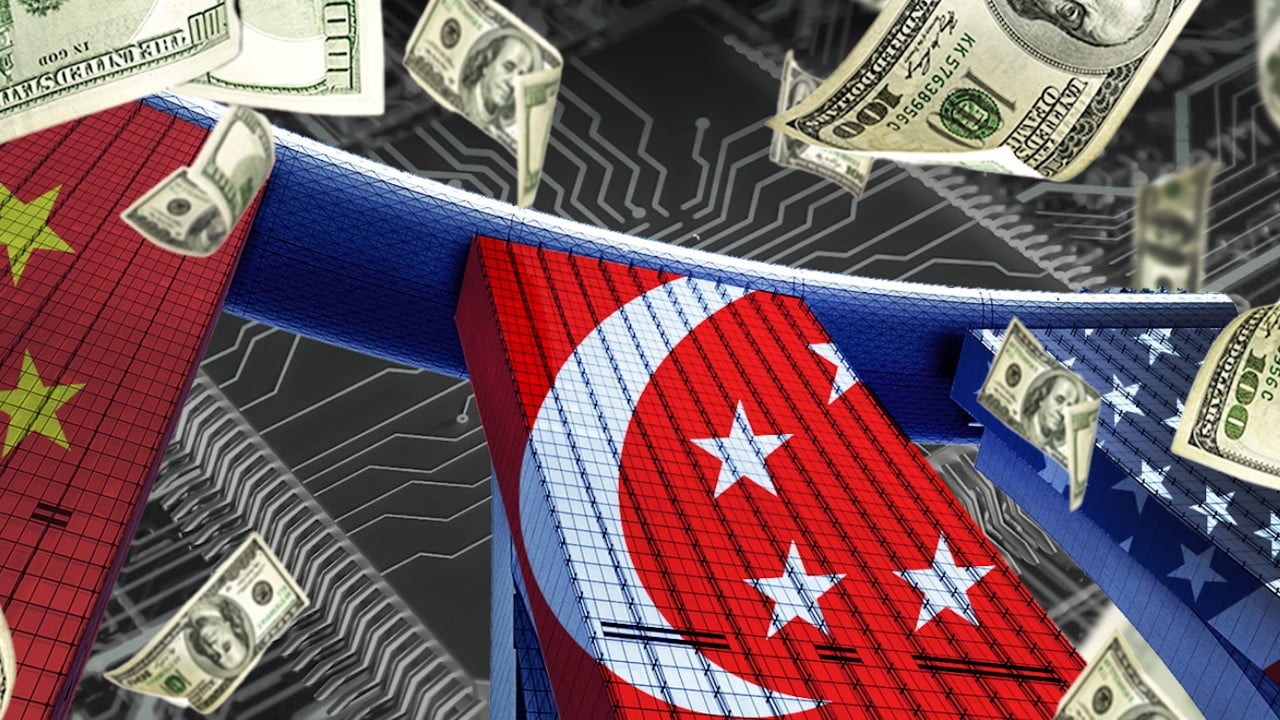Chinese megacity’s ex-mayor urges unfettered internet access and data flow in free-trade zones to compete with US

[ad_1]
“We are being edged out as our tech giants have grown smaller in size and the US and Europe enact new digital economy rules on data flow, storage and privacy and move to contain us,” Huang said.
Chongqing’s outspoken ex-mayor warns Big Tech about data practices
Chongqing’s outspoken ex-mayor warns Big Tech about data practices
Huang said China lagged behind in underlying technology, global market share and the international adoption of its rules on data management and privacy.
But Beijing is now betting on its digital economy – valued at 50 trillion yuan (US$6.8 trillion) last year, with annual growth outpacing overall GDP growth over the past decade – to boost the moribund economy.
Huang urged policymakers to look to free-trade zones as ideal testing grounds for reform.
“The widening gap [with the US] calls for exigent reforms to unleash innovation. Free-trade zones can test reforms and models before nationwide implementation, since issues such as data ownership, transactions and cross-border flows are complex and may involve nationwide consequences if not properly handled,” he said. “Free-trade zones can and should blaze a new path.”
Data controls and labyrinthine regulations governing cross-border data transfer have been a major concern for foreign companies in China, causing them to hold back on investing in projects such as research and development centres in the country.
Huang called for archaic laws to be scrapped and said special arrangements could be made for cross-border data flow and storage and fewer restrictions on internet access within free-trade zones.
He said free-trade zones in the eastern province of Zhejiang and other regions with extensive trade ties could pilot these reforms, provided that some state powers could be delegated to provincial authorities.
Huang said free-trade zones should seek cooperation with advanced economies such as Singapore and play by established rules such as those specified in the Digital Economy Partnership Agreement – a digital trade pact launched by Singapore, Chile and New Zealand in which China hopes to gain membership.
He added that having a “white list” of free-trade zone businesses could streamline supervision and allow more flexibility in data access for law-abiding companies in financial services, the car industry and e-commerce.
[ad_2]
Source link






